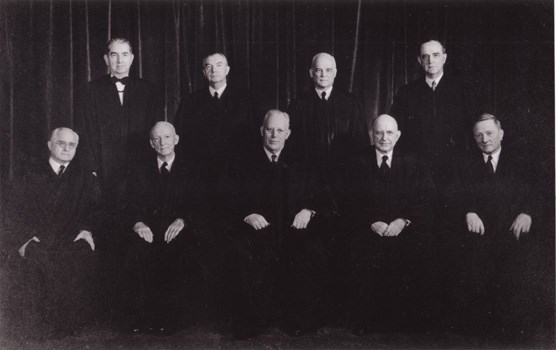
Library of Congress
Indecisive and divided, the court requested a reargument. Once again, the LDF gathered the sharpest expert witnesses they could find and presented their debate. Unexpectedly, Justice Vinson, who opposed desegregation, passed before reargument. He was replaced by Earl Warren who supported integration. The scale of debate had finally shifted

Library of Congress
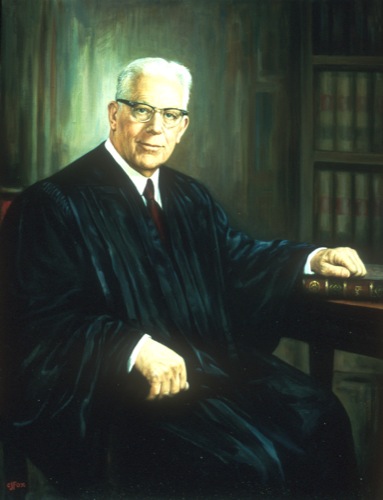
Justice Earl Warren, Oyez
“Warren was a “courteous, graceful, and a patient retentive listener…within weeks he had managed to establish cordial relations with all his colleagues” - James T. Patterson, Brown v. Board of Education: A Civil Rights Milestone and its Troubled Legacy.
Determined for unanimity, Warren used diplomatic tactics to persuade the Justices and tailored his responses to the Justice’s concerns. He discussed legality with Frankfurter and reassured the southern Justices Clark and Reed that the south would be given time to adapt. After employing diplomacy through several discussions, Warren successfully engineered a unanimous vote.

New York Times
"Segregation of white and colored children in public schools has a detrimental effect upon the colored children. The impact is greater when it has the sanction of the law, for the policy of separating the races is usually interpreted as denoting the inferiority of the negro group. A sense of inferiority affects the motivation of a child to learn. Segregation with the sanction of law, therefore, has a tendency to [hurt] the educational and mental development of negro children and to deprive them of some of the benefits they would receive in a racial[ly] integrated school system." - Cheif Justice Earl Warren
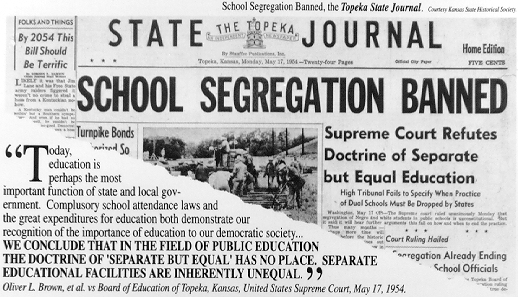
Topeka State Journal
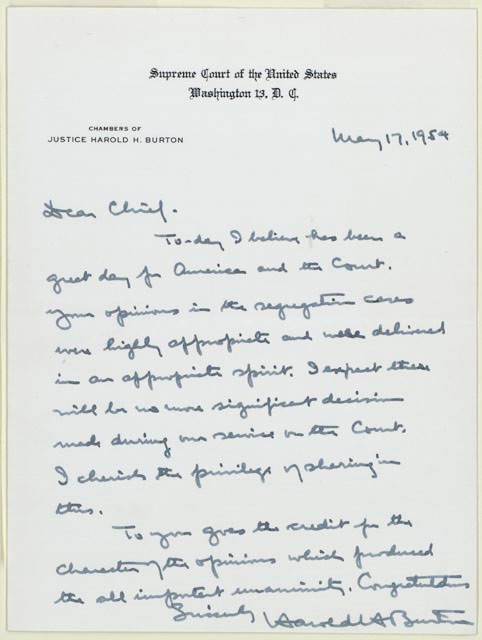
Library of Congress
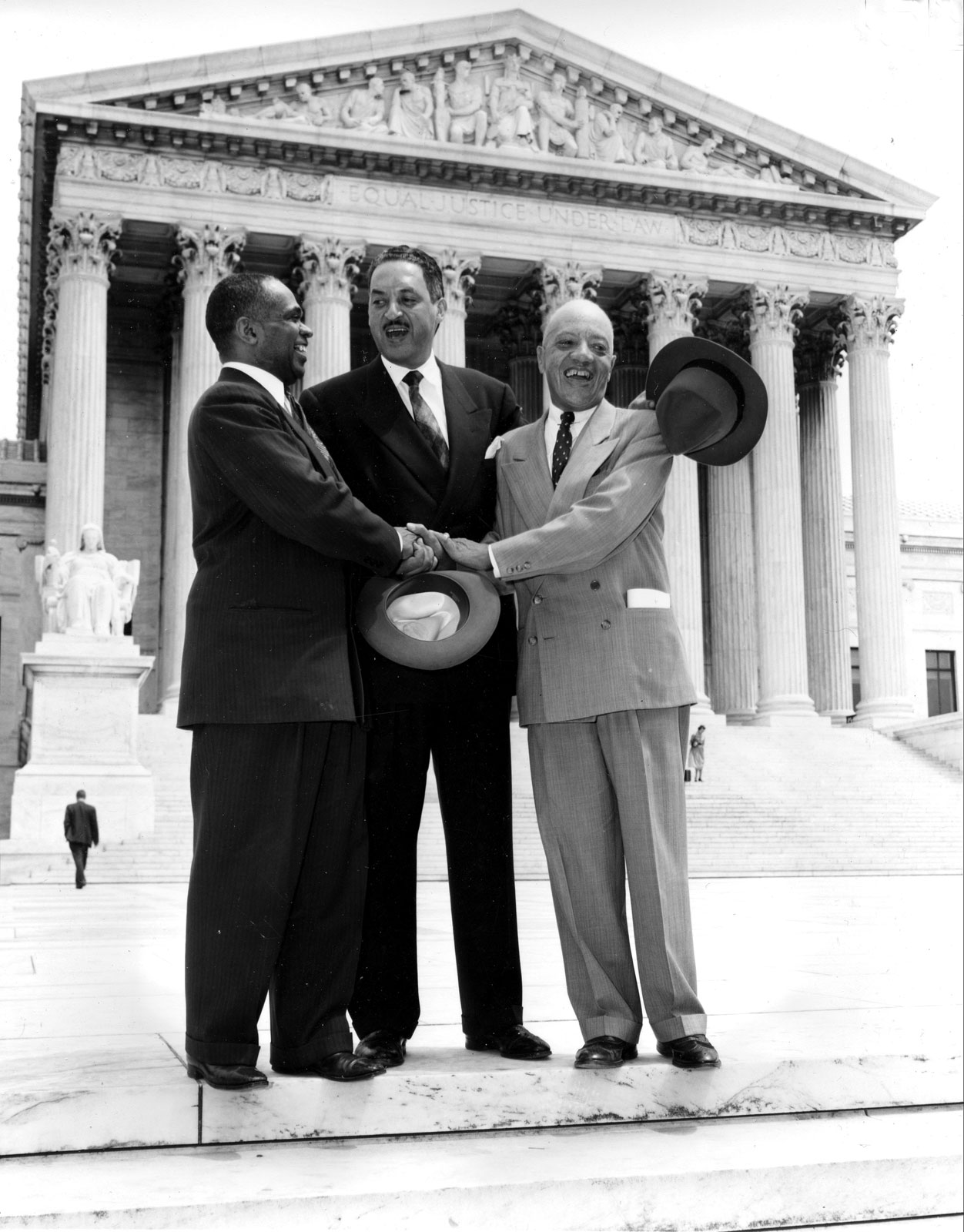
Library of Congress
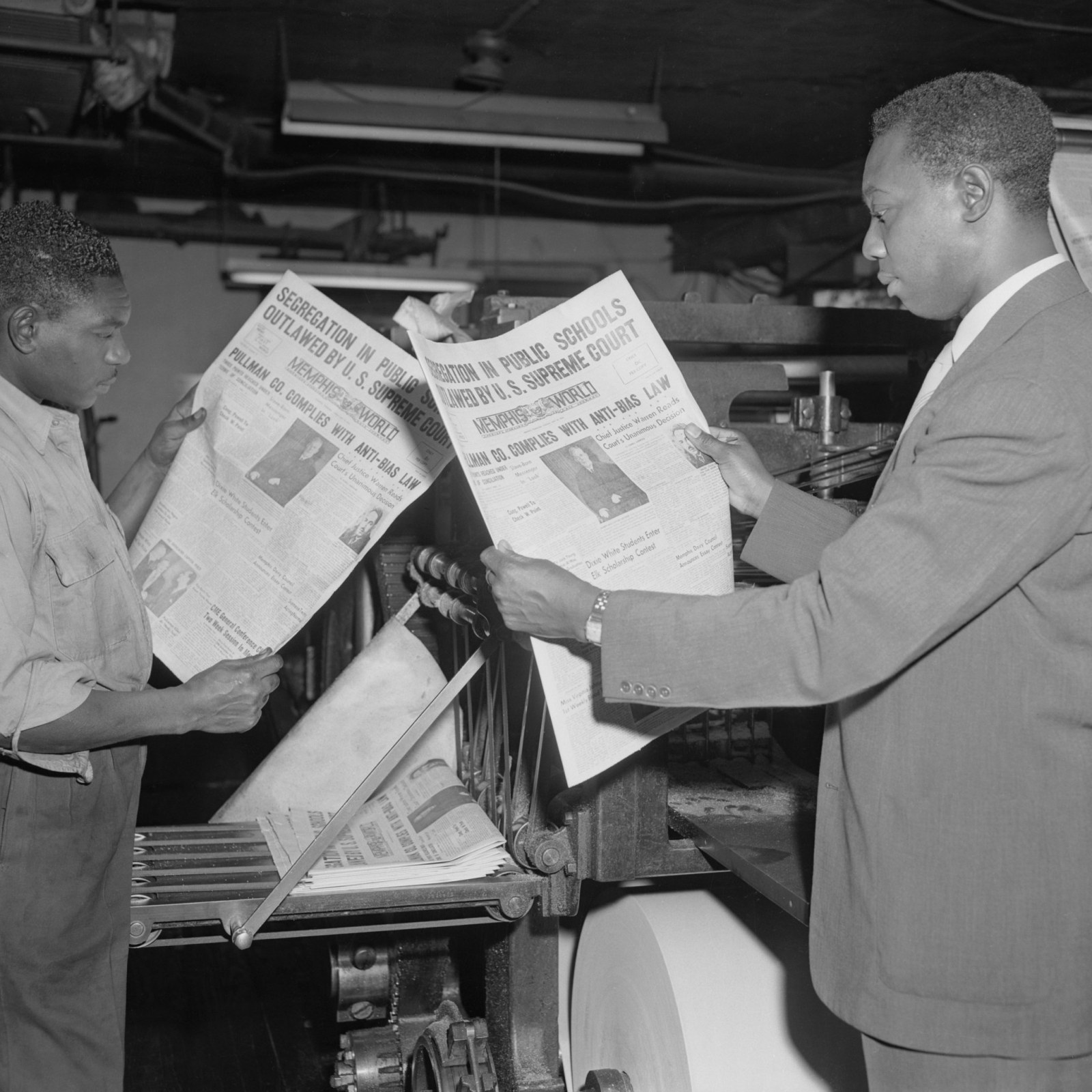
Library of Congress
“To you goes the credit for the character of the opinions which produced the all important unanimity. Congratulations.” - Justice Harold in letter to Justice Warren
"We conclude that, in the field of public education, the doctrine of "separate but equal" has no place. Separate educational facilities are inherently unequal. Therefore, we hold that the plaintiffs and others similarly situated for whom the actions have been brought are, by reason of the segregation complained of, deprived of the equal protection of the laws guaranteed by the Fourteenth Amendment. This disposition makes unnecessary any discussion whether such segregation also violates the Due Process Clause of the Fourteenth Amendment. " - Chief Justice Earl Warren
After years of debate, the LDF's work had succeeded.